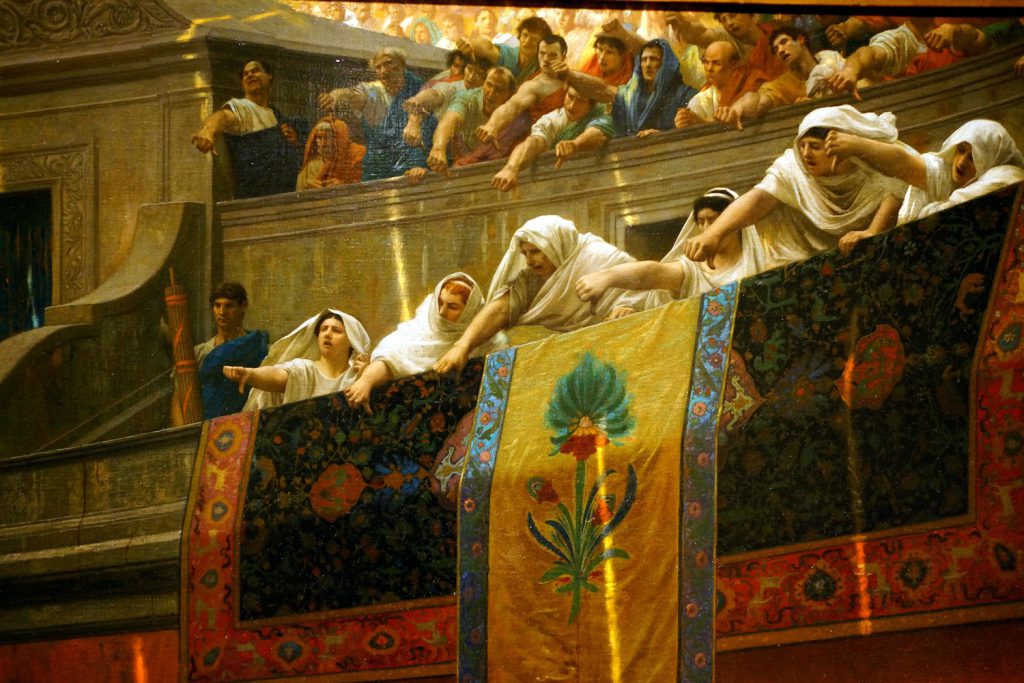The Dutch government was toppled last week by the child benefits scandal. This will have repercussions on higher education because all kinds of draft legislation will be put on the shelf. What, for example, will happen to lotteries for popular study programmes?
Friday the cabinet called it quits. Earlier in the week, PvdA MP Lodewijk Asscher resigned as labour party leader because of the benefits scandal, and now the government, too, seems to have drawn its own conclusions.
Actually, it was unavoidable. Thousands of parents ended up in trouble or had their lives torn apart due to the aggressive fraud investigations carried out by the tax authority. These parents were unjustly accused of having committed benefits fraud in one of the biggest political scandals in recent Dutch history.
Controversial
VVD Minister Wiebes of Economic Affairs (State Secretary for Finance in the previous government) has resigned with immediate effect. The other cabinet members will continue in the capacity of a caretaker government that will deal with on-going business.
But it is customary for no “controversial” subjects to be handled after a ruling government has collapsed. House representatives can decide themselves what they consider “controversial”, but in practice this is anything that a few political parties would object to.
English language
In the Senate, for example, the Language & Accessibility legislation is currently awaiting approval. This law aims to rein in the use of English in higher education in the Netherlands. That is, programmes will have to be able to account for why they offer courses in English. In addition, tuition fees for students from outside Europe will also change: foreign students will now have to pay the institution’s fee at a minimum.
Parties on both the left and the right have their doubts. GroenLinks and PvdA voted against the law in the House of Representatives, as did the PVV and Forum for Democracy. Just before reaching the finish line, this draft legislation could be declared controversial.
Lottery
And what about lotteries for programmes with enrolment restrictions? Right now programmes with a limited number of places are forced to select their new students, even if they don’t think it necessary. The government had wanted to send a draft bill to parliament in the near future that would make student lotteries possible again.
This bill will almost certainly encounter delays because both VVD and ChristenUnie don’t think it’s a good idea. They believe that it is better to select students based on how well they match a programme than to let it be decided by chance.
Student funding
It’s also possible that the return of the basic student grant will be delayed. The Socialist Party submitted a private member’s bill that would make quick rollout of new student grants possible following the election. This will undoubtedly be put on the back burner because the VVD in particular isn’t happy about it.
At your own pace
The idea of allowing “flex studies” in higher education is a little more distant. According to a majority of the House of Representatives, students should have the right to pay tuition per credit rather than for a whole academic year. That way they can study at their own pace. A motion was put forward directing the minister not to await the outcome of ongoing experiments but to start working on legislation right away. SP, GroenLinks and PVV voted against this motion, which means the controversial draft bill will not be submitted for the time being.
Varia
Presumably, other matters will proceed as usual. For example, draft legislation covering miscellaneous smaller issues (a “varia” act) is currently awaiting approval in the Senate. The items covered include such things as replacement diplomas when alumni change their names, but also financing HBO Master’s degrees (and the accompanying student funding).
Not a single party voted against this bill in the House of Representatives, so even the collapse of government won’t put a spanner in the works.
After the fall
Sometimes elections lead to a substantial change of course. Mark Rutte knows all about it. When he was State Secretary for Higher Education, he wanted to overhaul the funding of universities and colleges. Government funding should go where the students are. From that time on, students would acquire “learning rights” that they could spend at the educational institution of their choice. Rutte’s draft legislation got through the lower chamber of Parliament but never made it to a vote in the upper chamber. It was declared controversial after the collapse of the second Balkenende government in 2006. In 2007, his successor Ronald Plasterk (PvdA) threw it out.
Ten years ago, the parties VVD, CDA and PVV, among others, wanted to implement a fine for students who were taking too long to complete their studies. Such students would have to pay three thousand euros extra in tuition fees if they took longer than one year extra to finish their Bachelor’s or Master’s degree. But ultimately no one ever had to pay a fine: this law too was immediately withdrawn after the 2012 election.
Negotiations
The big question is how quickly a new government coalition can be put in place. Because of the pandemic, there are already calls to delay the election, and after elections it often takes months of negotiations to arrive at a new coalition agreement.
